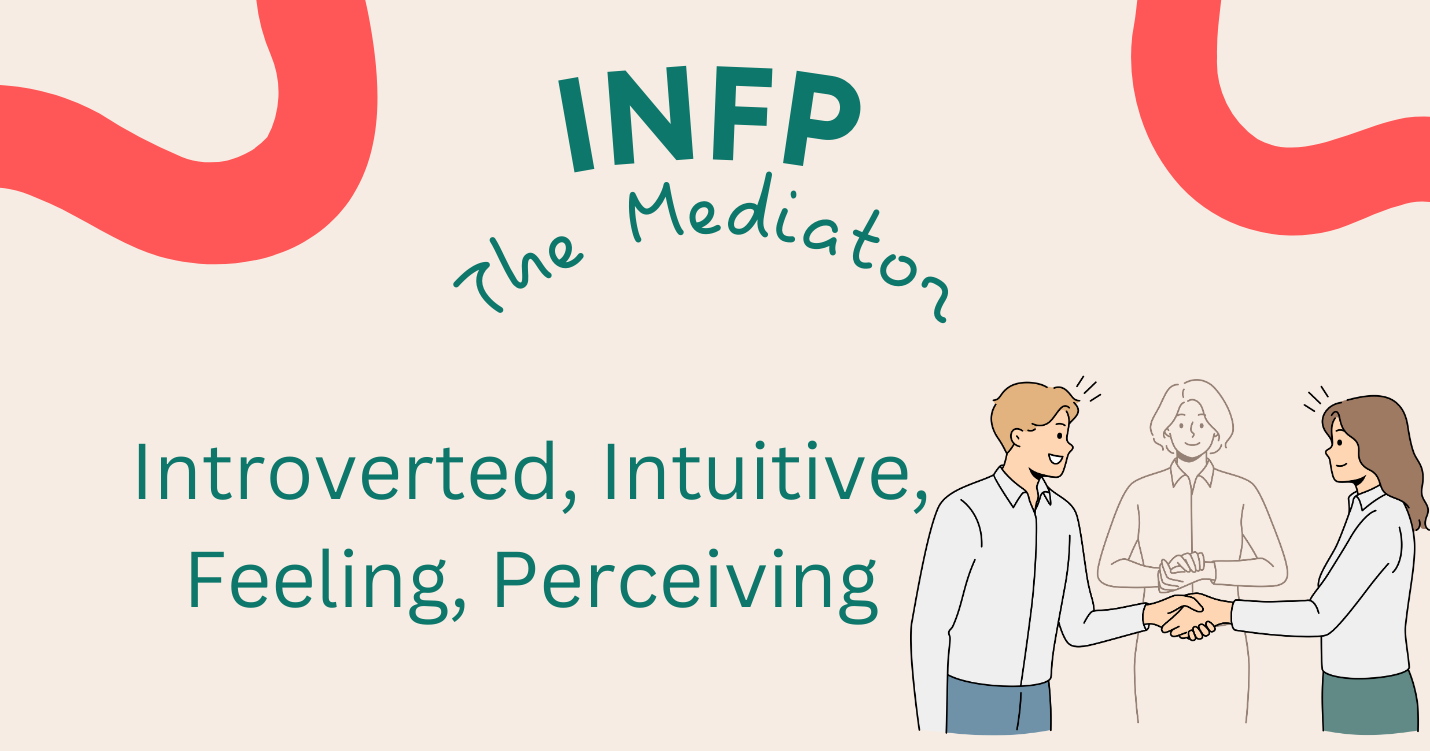
The INFP personality type is often described as an “idealist” or “mediator” personality. People with this kind of personality tend to be introverted, idealistic, creative, and driven by high values.
INFPs want to make the world a better place and are interested in how they can best help others. They also strive to gain a greater understanding of themselves and how they fit into the world. People with this personality type spend a lot of time exploring their own purpose in life and thinking about how they can use their skills and talents to best serve humanity.

INFP Strengths
- Idealism. INFPs care deeply for others and believe it is their duty to make a positive impact on the lives of other people in any way they can.
- Integrity. Integrity means everything to INFPs, and that includes intellectual as well as moral integrity.
- Compromise. As empathic idealists, harmonious relations are like a balm to the soul for INFPs.
- Dedication. It is easy to pay lip service to virtues like compassion, creativity, originality and open- mindedness, but these ideas don’t mean much unless they can be translated into real-world applications.
INFP Weaknesses
- Sensitivity. Their deep compassion, sensitivity and commitment to originality allows INFPs to interface with their interpersonal landscapes in a constructive manner, but these feelings also leave them vulnerable to disillusionment and powerful existential angst.
- Impracticality. INFPs unwilling to make compromises even when doing so might be necessary to get something accomplished.
- Selflessness. INFPs have a tendency to neglect or suppress their own needs if they believe it is necessary to keep the peace or make others happy.
- Vulnerability. Compassionate to the core, INFPs lead with their hearts rather than their heads and this can sometimes set them up for trouble.
INFP Growth and Development
In order to reach their full potential, INFPs should:
- Learn to recognize the difference between compromise and concession.
- Make sure dreams and fantasies are used to enhance reality rather than replace it.
- Learn to respect the details.
- Seek out leadership positions
- Accept themselves as they are without apology
The INFP at Work
At work, the INFP is not particularly driven by money or status, preferring work that aligns with their personal values and allows them to help others. INFPs are typically motivated by vision and inspiration, and want to engage with projects and causes that feel important to them.
INFPs enjoy the process of creative problem-solving, and want to understand complex issues. INFPs enjoy working autonomously and having control over how and when to complete a project. They often enjoy participating in teams. When they do work with other people, it’s important to the INFP that they be cooperative, supportive, and flexible, and that they have similar passion for their ideals.
INFPs in Love
In relationships, the INFP is nurturing, empathic, and loyal. Healers select their friends and partners carefully, looking for a strong bond and congruent values. They are self-aware and often spiritual. INFPs tend to be open-minded and accepting of another’s behavior and preferences, so long as their core values are not violated. They support their partners’ individuality, and encourage them to explore their interests and ideas. INFPs look for ways to compromise and accommodate other people, and often have creative solutions to interpersonal problems. They can be very sensitive, but often keep negative reactions to themselves because they are reluctant to engage in confrontation.
INFPs as Parents
As parents, INFPs are caring, supportive, and adaptable. They rarely establish a strict or structured household, preferring instead to address problems and situations as they arise. They often allow their children a lot of latitude and influence in making decisions, and may leave the creation and enforcement of household rules up to another parent. Children of INFPs often find that they have the freedom to express themselves and make their own decisions until they violate their INFP parent’s values. When values are in question, the Healer parent becomes firm and inflexible.
INFP Communication Style
INFPs are gentle, encouraging communicators who enjoy exploring options and ideas. They envision possibilities for people and are often good at coming up with creative, flexible solutions to problems. They are typically attentive listeners who try to adapt their communication style to the people they are dealing with. Compassionate and cooperative, they tend to be appreciative of other people and their ideas, although they may be reserved about sharing their own closely held values and ideas with people they do not know well.


